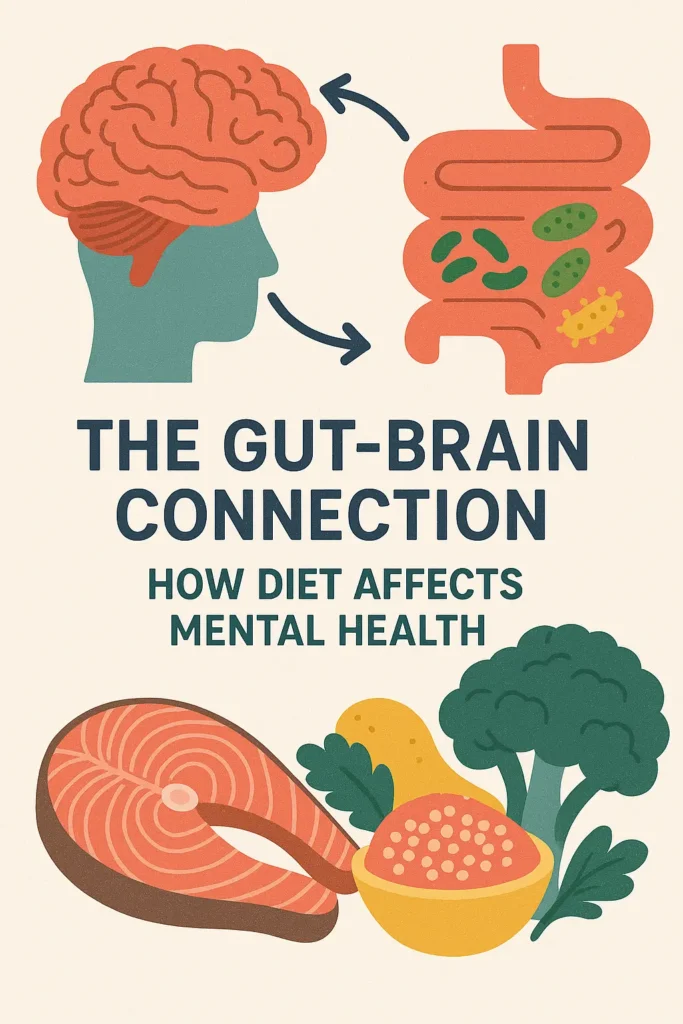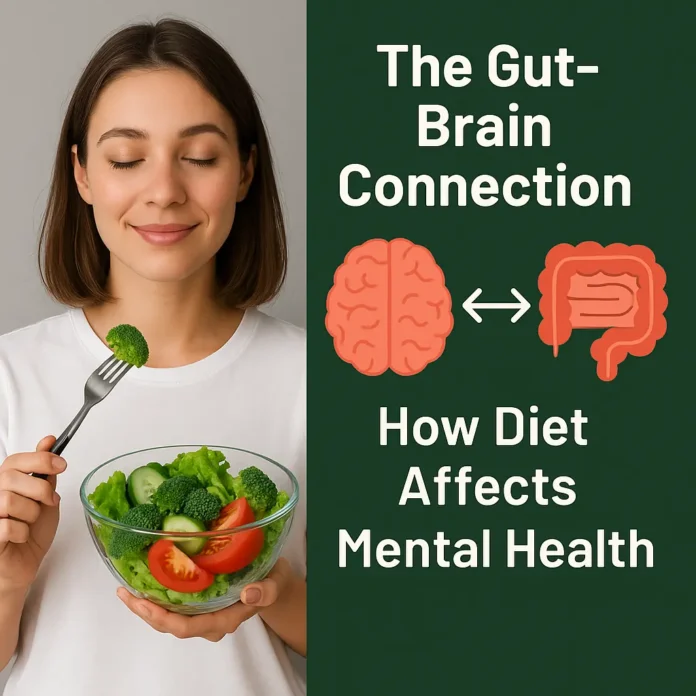Feeling foggy? Anxious? Down? While you might reach for a quick fix, the answer to a brighter mood and sharper mind could be closer than you think – right in your gut! The intricate relationship between your digestive system and your brain, often called the “gut-brain axis,” is a groundbreaking area of research revealing just how much your diet influences your mental well-being.
It’s not just a one-way street. Your brain sends signals to your gut (think about how stress can tie your stomach in knots), but increasingly, we understand that your gut is a powerful communicator back to your brain. This communication happens through various pathways, including the vagus nerve, hormones, and most importantly, the billions of microbes living in your intestines – your gut microbiome.
When your gut microbiome is balanced and healthy, it produces beneficial compounds that can cross the blood-brain barrier and positively influence neurotransmitter production (like serotonin, the “feel-good” chemical), reduce inflammation, and even improve brain plasticity. But when this delicate ecosystem is disrupted by a poor diet, it can lead to a cascade of negative effects on your mental health.

So, how can you nurture your gut to nourish your mind? Let’s dive into some key dietary strategies:
1. Fiber: The Fuel for a Happy Gut and Mind
When we talk about gut health, fiber is the undisputed superstar. But it’s not just for regularity; it’s the primary food source for your beneficial gut bacteria.
- Prebiotic Powerhouse: Certain types of fiber are known as prebiotics. They aren’t digested by your body but are fermented by your gut microbes, producing short-chain fatty acids (SCFAs) like butyrate. Butyrate is a powerhouse for brain health, known for its anti-inflammatory properties and its ability to support the integrity of the brain barrier.
- Stabilizing Blood Sugar: High sugar intake and rapid blood sugar spikes can contribute to inflammation and mood swings. Fiber helps slow down sugar absorption, leading to more stable blood sugar levels and consistent energy for your brain.
How to get more fiber: Load up on fruits, vegetables, whole grains (oats, brown rice, quinoa), legumes (lentils, beans), nuts, and seeds. Aim for a variety to feed a diverse range of gut microbes.
2. Fermented Foods: Your Direct Dose of Probiotics
Fermented foods are a fantastic way to introduce live, beneficial bacteria (probiotics) directly into your gut. Think of them as tiny warriors reinforcing your gut microbiome.
- Populating the Gut: Regularly consuming fermented foods can help increase the diversity and quantity of good bacteria in your gut, outcompeting harmful microbes.
- Neurotransmitter Production: Many gut bacteria are involved in the production of neurotransmitters like serotonin, which plays a crucial role in mood regulation, sleep, and appetite.
- Reducing Inflammation: Probiotics can help dampen systemic inflammation, a known contributor to mood disorders and cognitive decline.
Incorporate more fermented foods: Opt for natural, unsweetened yogurt (with live active cultures), kefir, sauerkraut, kimchi, kombucha, and tempeh. Start slowly and gradually increase your intake.
3. Intermittent Fasting: Giving Your Gut a Break
Intermittent fasting (IF) isn’t just a weight-loss trend; it’s a powerful tool for gut and brain health. By cycling between periods of eating and fasting, you give your digestive system a much-needed rest and trigger beneficial cellular processes.
- Autophagy and Gut Repair: During fasting, your body initiates a process called autophagy, where cells clean out damaged components and regenerate. This extends to your gut lining, promoting repair and reducing intestinal permeability (leaky gut).
- Microbiome Modulation: Studies suggest that IF can alter the composition of the gut microbiome, potentially increasing beneficial species and improving gut diversity.
- Reduced Inflammation: Fasting can reduce systemic inflammation, which has a direct positive impact on brain health and mood.
- Improved Brain Function: Anecdotal evidence and emerging research suggest that IF can improve focus, clarity, and overall cognitive function, possibly due to increased brain-derived neurotrophic factor (BDNF) – a protein vital for brain cell growth and survival.
How to try intermittent fasting: There are various methods, such as the 16/8 method (fasting for 16 hours, eating within an 8-hour window) or the 5:2 method (eating normally for five days, drastically reducing calories on two non-consecutive days). Always consult with a healthcare professional before starting any new dietary regimen, especially if you have underlying health conditions.
Beyond the Plate: A Holistic Approach
While diet is paramount, remember that the gut-brain connection is complex and influenced by other factors:
- Stress Management: Chronic stress can negatively impact your gut microbiome. Incorporate stress-reducing practices like meditation, yoga, or spending time in nature.
- Quality Sleep: Lack of sleep can disrupt gut health and neurotransmitter balance. Aim for 7-9 hours of quality sleep per night.
- Regular Exercise: Physical activity can positively influence gut microbial diversity and reduce inflammation.
The Bottom Line
Your gut is often called your “second brain” for good reason. By prioritizing a diet rich in fiber and fermented foods, and considering practices like intermittent fasting, you’re not just feeding your body; you’re nourishing your mind. Start making small, sustainable changes today, and experience the profound impact of a healthy gut on your mental well-being. Your brain (and your belly!) will thank you for it.


